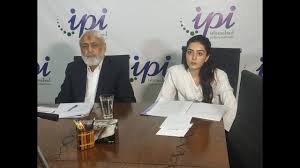Experts warn of growing sectarian tensions, criticize govt’s passive response

Islamabad: Security analysts and rights activists feel that the government’s response to a widening cycle of inter-sectarian tensions in the country was disturbingly passive despite the potential of the events to disturb internal security and social harmony.
They were speaking at a virtual dialogue hosted by Islamabad Policy Institute (IPI) in the backdrop of growing sectarian frictions in the country.
The participants of the dialogue looked into the causes of this trend in addition to its implications and suggested ways for dealing with the aggravating situation, which all agreed was “deeply disturbing”.
Secretary General Human Rights Commission of Pakistan Harris Khalique cautioned that the current wave of sectarianism could grow and in the process rupture other fault lines as well. He urged the government not to treat it as a “political issue”, but one of “urgent national importance”.
He said the increasingly acrimonious sectarian atmosphere could serve as a hotbed for radicalization and recruitment of extremists.
Khalique, therefore, called for immediate steps to restore cohesion and inclusive pluralism in society.
Former National Coordinator National Counter Terrorism Authority (NACTA) Tariq Parvez discussed the evolution of sectarianism in the country and noted that the situation had become dangerous. He warned that the events could take a turn for worse if the gravity of the situation is not immediately realized and timely and effective measures are not taken
Parvez said the situation cannot be dealt with through law enforcement and administrative measures. Rather, there needs to be a political will to confront sectarianism, which he regretted was currently not visible. He apprehended that sectarian parties’ vote bank was preventing the mainstream parties from showing the much needed political resolve for dealing with the problem.
He said federal government needs to take a lead on the issue because it’s a federal matter and not a provincial one. He also called for preventing the misuse of social media for promotion of sectarian hatred
The former NACTA chief pointed out that the sectarian landscape of the country was undergoing a massive transformation with the entry of Barelvi groups into what was traditionally a Shia – Deobandi dispute and involvement of new groups.
Security Analyst Amir Rana suspected that the government was ignoring the problem because of what he believed was a “weakened political will”. He warned that “such an approach would not work” and could rather “encourage the extremist sectarian elements”.
Rana recalled that all the groups participating in sectarian agitation had signed ‘Paigham-e-Pakistan’, a document prepared to counter violence, extremism and terrorism and observed that they used it to gain space for themselves instead of promoting harmony within the country.
He cautioned that weakening of political parties would increase the clout of the sectarian groups.
Executive Director IPI Prof Sajjad Bokhari said the recent events were taking sectarianism to the next level by mainstreaming sectarian hatred. He apprehended that the events were linked to developments in the Middle East and reminded that previous wave of sectarianism here followed the Arab Spring.
Political activist Mohsin Shehryar said the government is mistakenly believing that issues would settle by themselves after a series of rallies by sectarian groups in the country.





